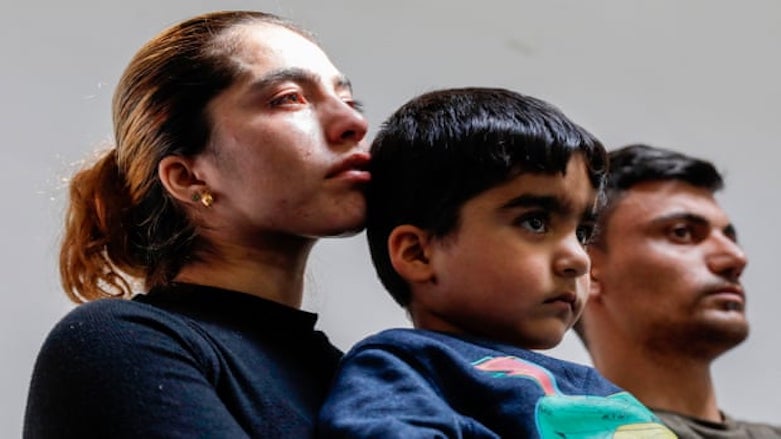Parents of 2-year-old Kurdish girl shot by police granted legal stay in Belgium

ERBIL (Kurdistan 24) – Belgium’s State Secretary of Asylum and Migration, Maggie De Block, has decided that the parents and brother of a 2-year-old Kurdish girl who was shot last year can stay in Belgium.
On May 18, 2-year-old Mawda Shamdin, died after police shot at a van carrying around 30 migrants, including her parents, near the city of Mons in southern Belgium.
The parents told Kurdistan 24 last year that they hold the Belgian police responsible for Shamdin’s death.
According to Belgian media, after nine months, it was decided that Shamdin’s parents and her older brother can stay in Belgium for a further year on a humanitarian visa.
After their visa expires, De Block can decide if the Shamdin family is awarded residency or not.
“I only admit such a humanitarian regularization in very specific cases,” HLN quoted the Belgian minister as saying. “This family is eligible [for such a visa] on all fronts. Losing your child is the worst thing that can happen to a person.”
The decision ends the situation of uncertainty for the family who were considered living illegally in Belgium.
For over six months, former secretary of state Theo Francken had not decided to give the family a visa. The government promised not to deport the family during the investigation into the death of the 2-year-old.
Belgian media reported that the parents are happy with the decision because it allows them to stay in the country and find work while they follow the investigation, and a possible court case in the future.
Meanwhile, Francken criticized the decision and claimed the Belgian immigration service had offered negative advice. He underlined that the family must return to Germany where their refugee case was rejected.
“They were rejected, so they are no refugees,” Francken wrote on Twitter.
However, De Block rejected the criticism and emphasized that she has the power to issue visas in special cases, adding it “was an act of humanity from the government.”
“The government earlier promised not to deport them during the investigation,” she explained. “Because of the regularization, their stay is now also according to the rules.”
Francken previously used the same power to give humanitarian visas to Christians from Syria.
That decision notably led to a scandal after Belgian Assyrian Melikan Kucam, the councilor of the city of Mechelen, was arrested last month and charged with corruption for allegedly demanding payment of up to 10,000 euros for the granting of humanitarian visas to Christians from Iraq and Syria.
Editing by Karzan Sulaivany
